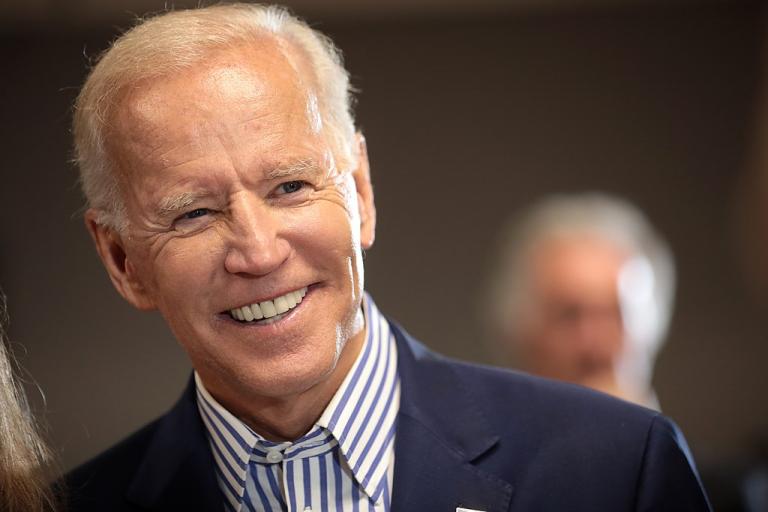Pending recounts, run-offs, late ballots, law suits, and Supreme Court reviews, it looks pretty certain that our next president will be Joe Biden. And yet Republicans seem to have won just about everything else.
If, as seems likely, the Senate stays in Republican hands, the radicals in the Democratic party will be stymied. There will be no additions to the Supreme Court, the filibuster will not be abolished, D.C. and Puerto Rico will not be turned into Democratic states, the Green New Deal will not remake the economy, and the rest of the hard left progressive agenda will die in the Senate.
Since the Senate, not the House, must confirm the President’s cabinet, federal judges, and other top officials, a Republican Senate will have a moderating effect on the entire Biden administration. Already, Biden’s transition team is reportedly preparing to nominate more moderate cabinet officials than they were first planning, should Republicans hold onto the Senate.
As of this writing, in the House of Representatives, Democrats lost six incumbents, Republicans lost no incumbents, and are expected to pick up between 7 and 12 seats, which would be just 5 short of the majority, well within reach of the typical opposition pickup in the midterm elections.
Republicans also did very well in state elections. They now dominate state governments, with Democrats failing to flip a single state. As of right now, with nearly all states having two legislative bodies, Republicans hold 59 to the Democrats’ 40. This is especially important now, since the coming year after the census will be a time for redistricting, giving the controlling party the opportunity to carve out districts in their favor.
Republicans also made significant inroads with blacks, Hispanics, and gays. Some 18% of black men–nearly one in five–voted for Donald Trump. As did 28% of LGBTs. (And why not? Trump is very pro-gay, something overlooked by both his progressive detractors and his evangelical supporters.) And Trump won 25%-35% of Hispanic voters. And in the crucial states of Texas and Florida, Trump’s share of Hispanic voters was even greater. He took almost 47% of the Hispanic votes in the heavily Democratic counties along the Texas/Mexican border. And in Florida, he took 45% of the Hispanic vote, winning him the state.
Cuban-Americans and Venezuelan Americans, who are concentrated in Florida, were reportedly greatly alarmed by the pro-socialist rhetoric coming from the left wing of the Democratic Party. They know from first hand personal experience what socialism does to a country. These voters fled socialism and want nothing to do with it in their new homeland.
So what happened? Why did so many Americans vote for Joe Biden while also voting for Republican senators, congressmen, and state officials?
Here is my theory: The USA is a moderate country, and most Americans are centrists. This is frustrating for both conservatives and liberals, neither of which can get the traction they want with the general public. The electorate overall considered Trump to be too extreme–whether in his policies or in his personality–so he was voted out of office. But the electorate also considered the progressive Democrats–with their socialist rhetoric, their nation-upending environmental and economic proposals, their charge that all white people are racist, their destruction of monuments to national heroes, their repudiation of American ideals, their desire to defund or even to disband the police, their refusal to condemn looting, rioting, arson, and violence–to also be too extreme.
So they went with Biden–whom rank and file Democrats also chose for his apparent moderation in favor of his more radical competitors for the nomination–while also leaving the Republicans in a strong position.
What this will mean is that Biden will have to govern as a centrist. He is very liberal, and conservatives will not like what he does. But he is an old school politician. Yes, he will go the way the wind blows, which means that he may well cave to the radicals if the Democrats gain the Senate. And yet, as a long-time Senator, he also knows how to wheel and deal, how to compromise, and how to work both sides of the aisle. That is what he has done through most of his long career. So what we will get is a relatively centrist government. Both conservatives and liberals will be unhappy with that. But at least the Republic will go onward. Biden might even succeed in toning down our polarization and help us become more unified once again.
A checked and balanced government is not a bad outcome for small government constitutionalists.
Photo: Joe Biden by Gage Skidmore from Peoria, AZ, United States of America, CC BY-SA 2.0 <https://creativecommons.org/licenses/by-sa/2.0>, via Wikimedia Commons













